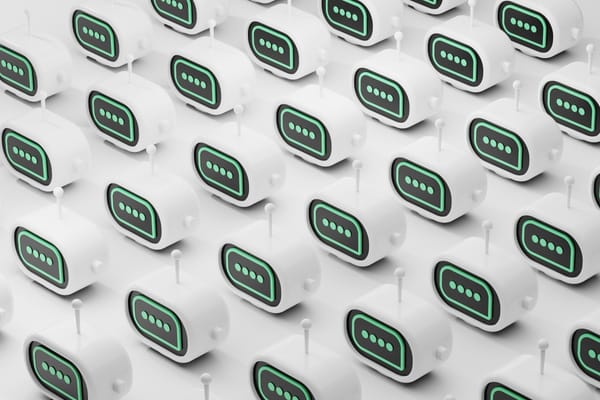
If I ran X
How to transform the internet's most toxic platform into essential infrastructure.

Why effective opposition requires more than just saying no

The case for moving AI down the stack

How we might rebuild journalism from the ground up by rethinking what a newsroom is.

Why the idealistic promise of collaborative software often falls short of its potential.

I relaunched my website on Ghost. Here's why.

I’m grateful that people stop by and read my posts. I think I’m really lucky. Thank you! I love writing here, but I’d love to know how I could serve you better. So every year I ask my readers to fill in a short survey. It doesn’

A quick note before we begin: This post reflects my own views on newsroom technology leadership, not necessarily those of my employer. I like to say that journalism treats technology as something that happens to it — like an asteroid. But technology is too important to the future of news for

If you’ve enjoyed my recent series about the open social web, great! There were four parts, which I think are collectively some of my best work: * What the future of Bluesky might look like * How Mastodon could be the future of online communities * What I’d do if I

If the open social web is going to grow and thrive, people need to be able to build new platforms and services sustainably. But that’s not what the email I was reading was telling me. The message in my inbox captured a persistent and problematic idea in open tech
Werd I/O explores the intersection of technology, democracy, and society. It's independently published by Ben Werdmuller, reader-supported, and always free to read.
"Grammarly has signed a deal to acquire email efficiency tool Superhuman as part of the company's push to build an artificial intelligence-powered productivity suite." I did not see this coming.
"Some schools have asked staff to use secure messaging systems like Signal instead of text and email to keep sensitive conversations from public reach." They, like many others, need more private, self-hosted software.
"I’m a political scientist, and I found that Americans were far less likely to publicly voice their opinions than even during the height of the McCarthy-era Red Scare."

The case for moving AI down the stack
Stephen Miller and at least a dozen other Trump appointees own stock in Palantir, the company that provides "mission critical" services to ICE.
A federal court agreed that using copyrighted works to train AI is fair use - but that pirating them to do so infringes creator rights.
"Substack's One Weird Marketing Trick was leveraging the economic interests of traditional media employees against their publishers to get positive "earned media"."
"There are clear indications from oppressive governments around the world that biometrics will be used to harm human rights, regardless of their accuracy or fairness."
"When the government can track where you go, whom you associate with, and what you spend your money on, it [...] chills freedom of expression, undermines your freedom to travel, and destroys the fundamental privacy right that underlies American liberty."
Ten years ago, Google crawled two pages for every visitor it sent to a publisher. Today, Anthropic crawls 60,000.

How we might rebuild journalism from the ground up by rethinking what a newsroom is.

404 Media reveals collaboration between ICE and local police